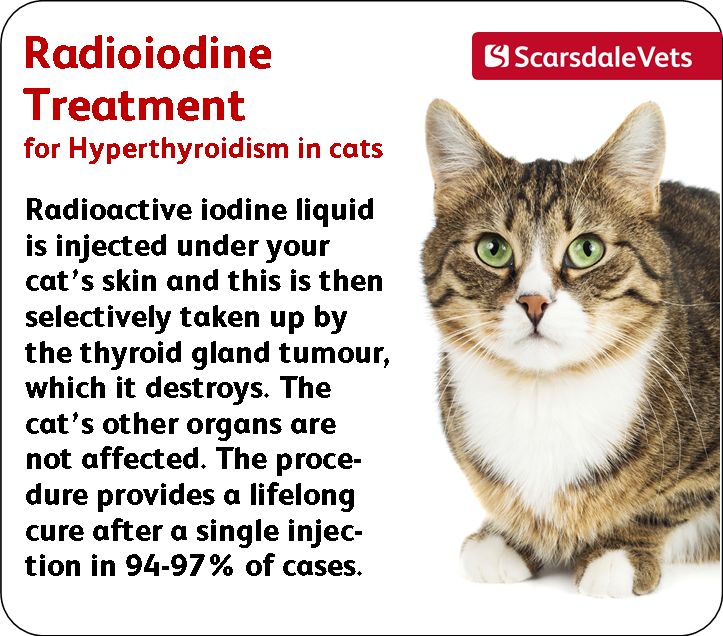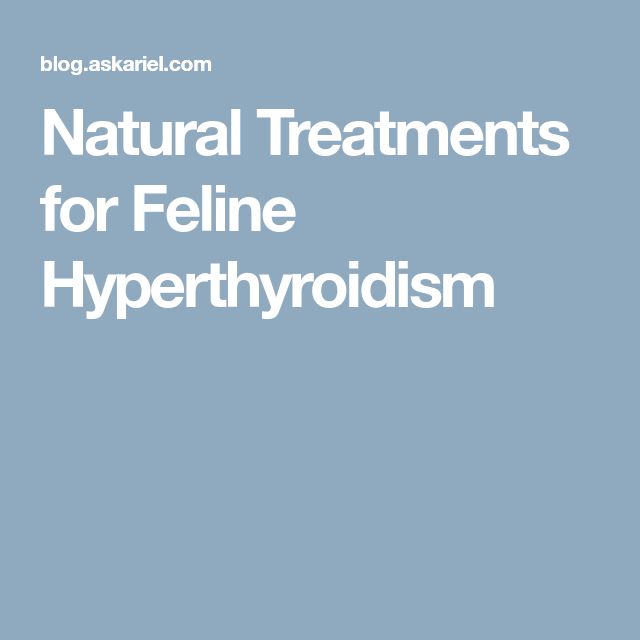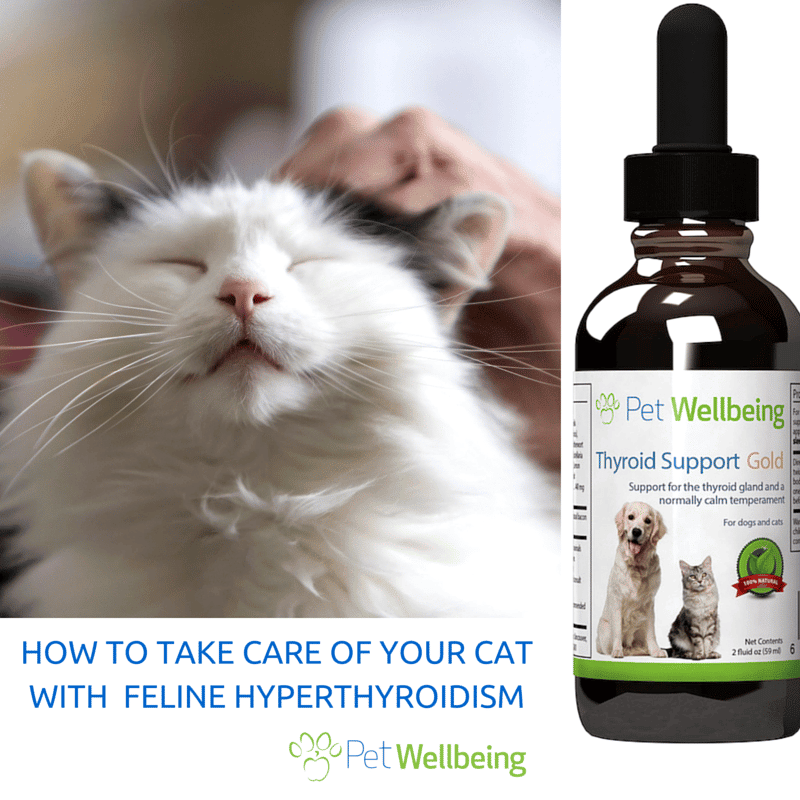When To Put A Cat To Sleep With Hyperthyroidism
Sadly, because hyperthyroidism in cats tends to reveal itself quite late, the prognosis can be poor. Your vet will discuss the best course of action with you.
It is not always necessary to put your cherished companion to sleep. Hyperthyroidism in cats can be managed with a treatment plan, especially when it is diagnosed as soon as you notice changes in your pet’s behavior or appearance.
Complementary Therapies How Denes Can Help
Herbal remedies & Supplements
Plant based medicines can be used on a symptomatic basis to help alleviate some of the signs of the illness. Denes Tranquil & Calm Powder can ease both the anxiety and hyperactivity symptoms seen in many cats with this illness. Where conventional drug treatment is used, we would recommend using Denes Liver Support Powder, a supplement used to support the liver and protect it against the potentially toxic side effects of the drugs used to treat this condition. We would also suggest using this supplement where there is evidence of liver disease. Where there are also kidney problems we would add Denes Kidney Support , a blend of herbal tinctures and Denes Urinary & Skin Support Capsules, a herbal medicine, both of which can be used to help the kidneys to work better.
Flower Essences
You can use the Highly Strung Flower Essence drops to calm your cat, as an alternative to using our Tranquil & Calm Powder. The drops can be added to food and can be given on a long term basis to calm your cat and ease any anxiety.
Homeopathic remedies
Skin & Coat Maintenance
Omega 3 fatty acids are useful in both preventing and in treating heart disease by improving the strength and health of heart muscle. Omega 3 fatty acids can help prevent arrhythmias, blood clots and can also lower blood pressure so are useful in managing cats with hyperthyroidism. Denes Organic Omega Oil is high in omega 3 fatty acids.
Diet
Important Note
About Dr Pete Wedderburn Dvm
Dr Pete Wedderburn qualified as a vet from Edinburgh in 1985 and has run his own 4-veterinarian companion animal practice in County Wicklow, Ireland, since 1991. Pete is well known as a media veterinarian with regular national tv, radio and newspaper slots, including a weekly column in the Daily Telegraph since 2007. Pete is known as “Pete the Vet” on his busy Facebook, Instagram and Twitter pages, regularly posting information on topical subjects and real-life cases from his clinic. He also write a regular blog at www.petethevet.com. His latest book: Pet Subjects, was published by Aurum Press in 2017.
Also Check: Why Does My Cat Bite My Nose
Hyperthyroidism Therapy And Renal Disease
Many cats successfully treated for hyperthyroidism experience a decrease in renal function, though only a small percentage experience severe azotemia or clinical signs. The first study to evaluate the effects of treating hyperthyroidism on renal function involved 58 cats.13 Urine specific gravity and serum creatinine, blood urine nitrogen , and T4 concentrations were measured before and 30 and 90 days after the cats hyperthyroidism was treated with radioactive iodine, methimazole, or bilateral thyroidectomy. Thirty and 90 days after treatment, the mean serum creatinine and BUN concentrations were significantly higher than pretreatment concentrations. The mean serum creatinine, BUN, and T4 concentrations did not differ among groups before treatment or 30 and 90 days after treatment. This finding was important as it showed that the treatment itself was not the problem instead, the worsening azotemia may have resulted from reversal of the hyperthyroid and hypermetabolic state. Reducing serum T4 concentrations by treating hyperthyroidism may cause azotemia in older cats with chronic renal disease. The authors concluded that it may be prudent to treat azotemic hyperthyroid cats with methimazole until you can determine whether correcting the hyperthyroid state will cause a clinically relevant reduction in renal function.
Dont Miss: 10 Month Old Cat In Human Years
Diabetes How Sweet It Is

Insulin is a very potent hormone produced by the beta cells of the pancreas. Insulin is released into the blood stream in response to increasing levels of sugar that follow consumption of a meal, especially meals high in the complex sugars we call carbohydrates. Insulin’s job is to control the level of glucose in the blood stream. Insulin’s role in health is critical as excessive glucose levels, as occur with untreated diabetes mellitus, are toxic. Insulin release is triggered by increases in the glucose level in the blood. In response to increasing levels of insulin in the blood, glucose is removed from the blood stream and stored in the form of either glycogen in muscle and liver tissue, or fatty acids in adipose tissue. Elevated levels of insulin in the blood stream called hyperinsulinemia occur following the consumption of many forms of carbohydrate. Persistently elevated levels of insulin in the blood stream ultimately lead to down-regulation of the insulin receptors causing insulin resistance that if untreated often progresses to type II diabetes. Because of insulin’s potent induction of fat storage, hyperinsulinemia is also a potent cause of obesity.
Take away message: To minimize insulin dose requirements in diabetic cats and achieve weight loss that may actually result in remission of diabetes, feed a wet food diet with limited carbohydrate content .
Don’t Miss: Food Allergy Symptoms In Cats
What Causes Feline Hyperthyroidism
The majority of cases of hyperthyroidism in cats are as a result of a benign change to one or more of the thyroid glands called hyperplasia or adenoma. These cause enlargement of the gland and cause it to produce thyroid hormone in an uncontrolled way. Despite extensive investigations, no one, single cause has been found to explain the development of these changes, however, it appears to be more common in cats that live entirely or predominantly indoors and those that consume tinned cat food. Fire retardant chemicals have also been suggested as a cause but this has also not been conclusively proved.
In a small proportion of cases , hyperthyroidism can be caused by a malignant cancer of the thyroid gland called thyroid carcinoma.
How To Treat Hyperthyroid Disease In Cats
This article was co-authored by Pippa Elliott, MRCVS. Dr. Elliott, BVMS, MRCVS is a veterinarian with over 30 years of experience in veterinary surgery and companion animal practice. She graduated from the University of Glasgow in 1987 with a degree in veterinary medicine and surgery. She has worked at the same animal clinic in her hometown for over 20 years.There are 7 references cited in this article, which can be found at the bottom of the page.wikiHow marks an article as reader-approved once it receives enough positive feedback. In this case, 100% of readers who voted found the article helpful, earning it our reader-approved status. This article has been viewed 19,244 times.
Hyperthyroidism, the most common hormone disorder in cats , is caused by an overproduction of thyroid hormones by the thyroid glands.XResearch source Although treatable, it can make your cat feel pretty miserable. If you have an older cat who becomes sick and isnt acting like her usual self, she may have hyperthyroidism. Your veterinarian can diagnose and treat this disease.
Also Check: My Cat Is Stiff But Still Breathing
Are There Natural Treatments For Hyperthyroidism In Cats
It is not recommended to try natural treatments for hyperthyroidism in cats unless you have been given the go-ahead by your vet.
This condition can – and will – be very dangerous when untreated, and some natural treatments are not treatments at all, in the sense that they likely wont work. All the while the natural hyperthyroidism treatments are not working, and your cats health will be in decline.
Some natural remedies for hyperthyroidism in cats are: switching to organic/all-natural cat food types, supplementing the diet with various minerals and vitamins, and even going as far as switching from commercial to raw cat food. These may be recommended by your vet to work in conjunction with other treatment approaches, such as medication or surgery.
Treatment: The Importance Of Nutrition
The food your cat eats plays an important role in her overall health and well-being. Balanced nutrition is an essential part of an active, healthy lifestyle. For accurate diagnosis and treatment options, always consult your veterinarian and ask them to recommend the best food for your cats thyroid health.
Don’t Miss: Orange Tabby Kittens For Sale
Can Hyperthyroidism Be Cured
Traditional treatment for hyperthyroidism can include medication and surgery.
If the thyroid is completely removed, technically hyperthyroidism is reversed, however, now the patient has hypothyroidism and has to be on levothyroxine for life. This option is only considered in very extreme circumstances.
While you can not cure an autoimmune condition, you can put it into remission and eliminate symptoms with surgical, pharmaceutical, and natural therapies.
Hope For Cats With Hyperthyroidism
Hyperthyroidism is, unfortunately, a common condition in cats. In fact, it is the most common hormone issue found in cats and is often found in cats over the age of 10. Finding out your beloved kitty has hyperthyroidism can be devastating but it doesnt have to be. There is hope for cats with hyperthyroidism. There are many ways to support your kitty to help them live a happy and healthy life.
Cat-dad Brian reached out to us to tell us his story of when his furkiddo Bramba, was recently diagnosed with hyperthyroidism and the hope he found to help him through it.
You May Like: Is Pretty Litter Safe For Cats
Thyroid Supplement Support With L
Only Natural Pet Feline Thyroid Wellness Support Supplement for Cats contains a synergistic blend of ingredients to help support a healthy endocrine system and normal immune function. This thyroid supplement for cats comes in a turkey flavored chewable tablet for even the most finicky cats.
Featuring ingredients like l-carnitine, lemon balm, and eleuthero, Only Natural Pet Feline Thyroid Wellness Support Supplement for Cats is holistic veterinarian formulated. This thyroid supplement for cats is designed to support your cat’s specific needs.
Discover the difference Only Natural Pet Feline Thyroid Wellness Support Supplement for Cats can make for your cat today!
Country of origin:
INACTIVE INGREDIENTS: Magnesium Stearate, Microcrystalline Cellulose, Natural Turkey Flavor.
DIRECTIONS FOR USE:
1 tablet daily.
CAUTIONS: Safe use in pregnant animals or animals intended for breeding has not been proven. If lameness worsens, discontinue use and contact your veterinarian. An examination from a veterinarian is recommended prior to using this product.
WARNINGS: For animal use only. Keep out of the reach of children and animals. In case of accidental overdose, contact a health professional immediately.
About Only Natural Pet
Born and bred in Boulder, Colorado, we grew up under blue skies, mountains, and the kind of wide-open spaces that inspire big ideals and better practices.
Journey with us to a higher state of wellness
Top 6 Best Cat Foods For Hyperthyroidism

Because theyre typically lower in carbohydrates, usually contain higher-quality protein, and are more hydrating than dry foods, all of the products on the following list are wet cat foods.
With the exception of the Hills prescription diet, these are not treatments for hyperthyroidism. Instead, they contain high levels of highly-digestible protein to maintain and restore lean muscle mass. These foods should accompany curative treatment.
If your cat has any concurrent diseases that demand a special diet, consider those needs first and talk to your veterinarian to find a food that encourages all-around health.
Also Check: What Age Can Kittens Have Catnip
Read Also: Free Coloring Pages Of Cats
Prescription Diets Not Necessarily What The Doctor Ordered
Since the early 1980s Donald Strombeck, DVM, PhD recognized the direct link between many of our dogs and cats gastrointestinal problems and the commercial diets they were being fed. In the first edition of his book entitled Home-Prepared Dog & Cat Diets: the Healthful Alternative Strombeck acknowledged that many cases of diarrhea in pets are directly related to the contamination of the diets with bacteria or inadequate cooking of those diets with significant carbohydrate content. Copies of the 1st edition of Stombecks book are still available from sources like and , but the contents of that book have also been made available online at Dr. Stombecks web site.
While many cats may become ill eating commercial cat foods contaminated with bacteria or containing inadequately cooked carbohydrates, these cats represent the minority of cats harmed by eating commercial diets. Most commercially available cat foods cause problems in the cats that eat them due to their use of improper ingredients including their reliance on excessive carbohydrate content, their use of plant based proteins and the marginal dehydration induced by feeding dry diets.
Take away message: Consider the value of feeding meat based diets with low carbohydrate and relatively high water content as a potential alternative to prescription diets designed to achieve similar results.
What About Using Flower Essences For Cats
Many people also report extremely effective results using Bach Flowers and most especially the Rescue Remedy for cats. Although Rescue Remedy is a brand-named Flower essence and as such is not actually a homeopathic remedy. But again, cats do seem to respond very positively to energy medicines.
For those who are interested in finding out about Homeopathy, I have listed below a selection of E-Books, which can be read on-line for free.
Also Check: How Much Does A 320 Cat Excavator Weight
Cat Thyroid Medication & Treatment: 4 Options
Vets will usually use four treatments for hyperthyroidism: dietary therapy, medication, surgery, and radioactive iodine therapy.
The correct course of treatment will depend on a wide variety of factors, including the specific hormones that are disrupted, the levels of those hormones, and other symptoms displayed by your pet.
Holistic Regimen For Cats With Hyperthyroidism
- Promotes cellular regeneration and repair
- Removes toxic chemicals that can accumulate in your cats system
Milk thistle is one of the few herbs that have no equivalent in conventional medicine and has many uses. You can read about the many applications of Milk Thistle for cats and dogs on Dr. Hillary Cook’s blog.
Milk Thistle for Liver Function
- Assists with detoxifying a damaged liver
- Enhances the regenerative effects by supporting and strengthening the liver
Milk Thistle for cats with liver disease is glycerin-based and safe for long-term use. This potent herbal formula provides excellent proactive support and can be taken in conjunction with conventional treatment.
Milk Thistle for Kidney Function
- Improves kidney function as well as aiding the damage that can occur in the body due to the use of drugs, radiation therapy, diabetes, and infections.
- Preliminary studies have shown Milk Thistle to improve markers associated with diabetic kidney disease in blood and urine.
Milk Thistle for Anti-Cancer Support
- Due to the antioxidant properties, Milk Thistle may help reduce or slow down the growth of specific cancer cells.
- May protect and prevent cancer cells from dividing in your cats body.
Milk Thistle may also be beneficial to cats undergoing chemotherapy as Silymarium may enhance the activity of certain chemo drugs.
You can read Peachez’s Story with Milk Thistle for cats and how it helped her with cancer and liver problems.
- item number
Symptoms of Heart Disease
- item number
Recommended Reading: Why Do Cats Not Use The Litter Box
Thyroid Health Questions To Ask Your Veterinarian
How To Treat Hyperthyroidism In Cats
Alycia Washington is a Doctor of Veterinary Medicine with nearly a decade of experience as a small animal emergency veterinarian. She currently works as a relief veterinarian for various emergency and specialty hospitals. Dr. Washington recognizes the importance of education and also works as a freelance veterinary writer.
Getty Images/krblokhin
No one wants their cat to get sick but some illnesses can be easily managed with proper treatment. Hyperthyroidism is one such disease and is fairly common in older cats. By knowing the common symptoms of this disease, you can get your cat the veterinary attention that is needed to treat and manage it before other serious problems develop.
Don’t Miss: Best Flea Drops For Cats
Symptoms Of Cats With Hyperthyroidism
Sadly, cats with hyperthyroidism can display very few symptoms of their condition until the condition has progressed significantly, at which point it can be fatal.
According to research, symptoms that are commonly associated with hyperthyroidism in cats include:
- Bumping into things, caused by sight loss
- Faster than usual heart rate.
You might also be able to feel the enlarged thyroid glands in the neck, although they are usually quite small.
What Is Hyperthyroidism In Cats

Feline hyperthyroidism is an extremely common condition that occurs when the thyroid gland in the neck becomes overactive. The thyroid glands produce a hormone that controls the animals metabolic rate i.e how the body uses energy. The brain controls the level of thyroxine by telling the thyroid gland how much to make.
Growth in the thyroid gland can cause hyperthyroidism, producing more active cells. However, these cells can develop out of control and instead produce thyroxine continually instead of the amount that is needed. High levels of thyroxine in cats can force the body into overdrive. The body is kept constantly at an unnaturally high level of energy, which places enormous strain on other systems, including the heart.
Left untreated, cat hyperthyroidism can be fatal and early diagnosis is key to ensuring other organs are not affected. Fortunately, there are several treatment options available that can help to manage an overactive thyroid in cats effectively.
Also Check: How Much Should A Cat Pee